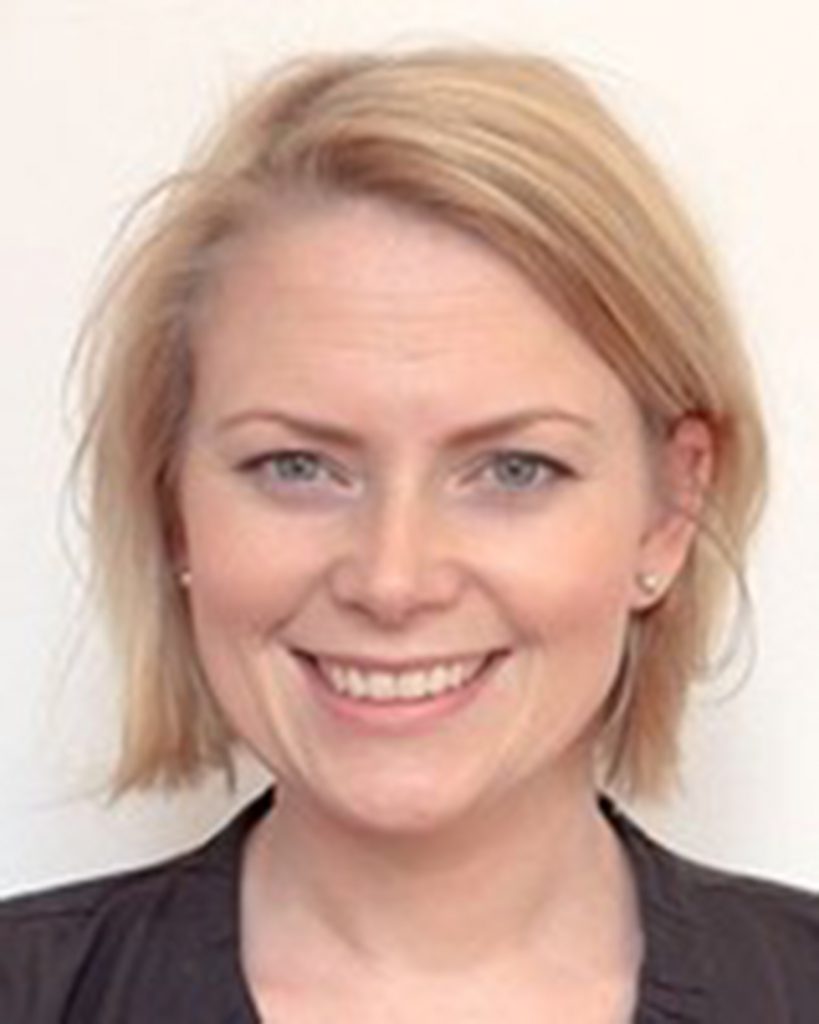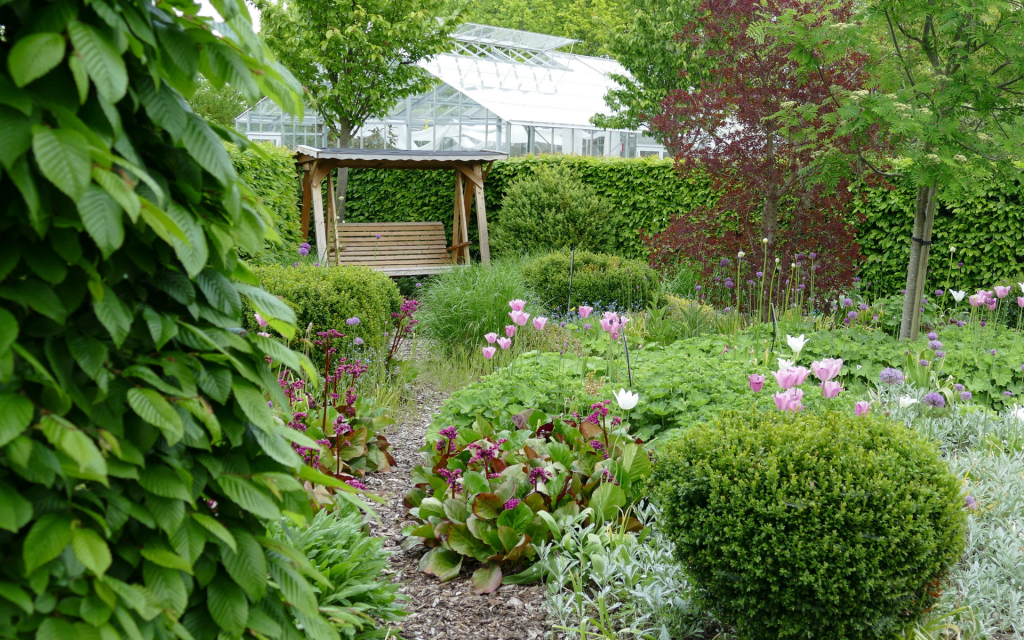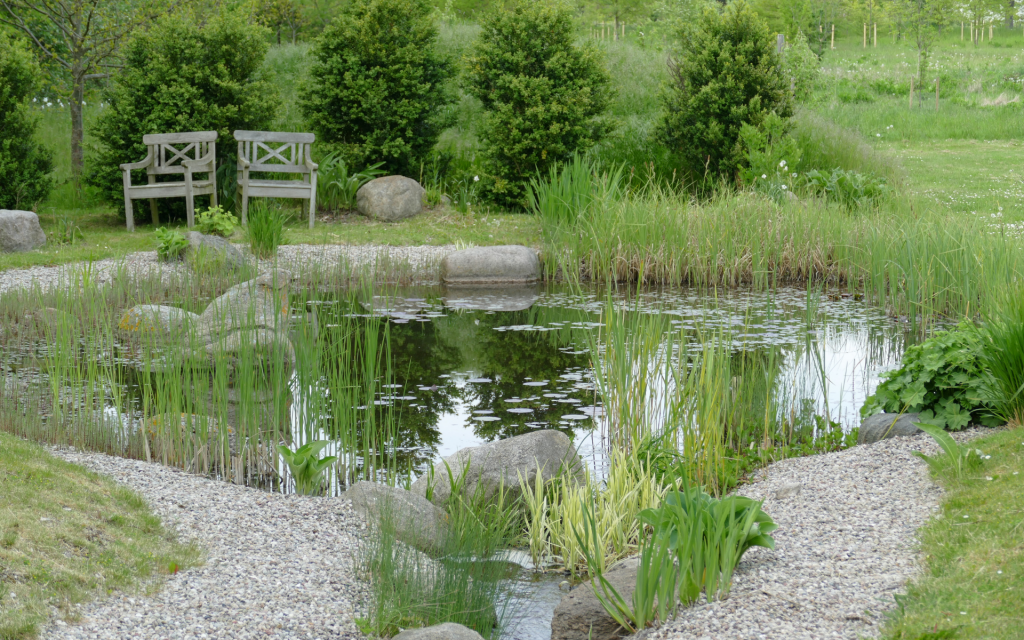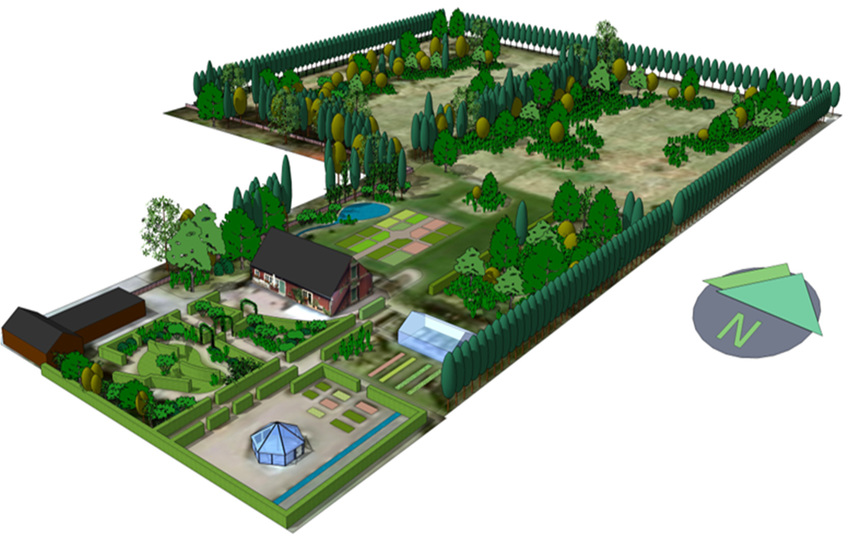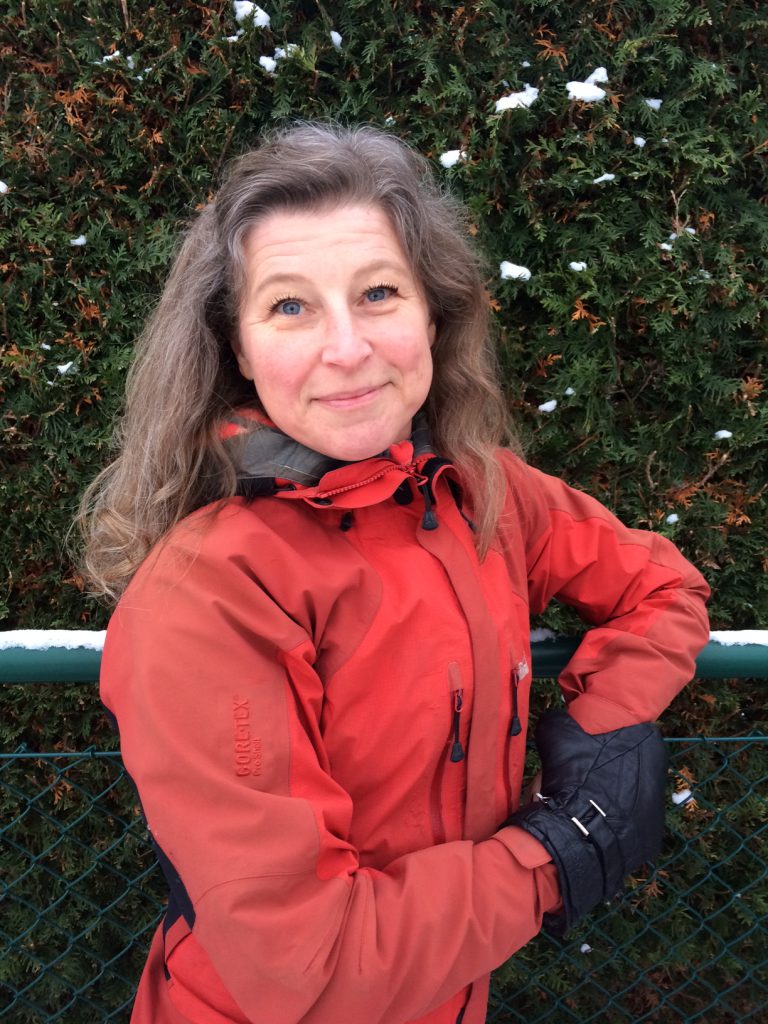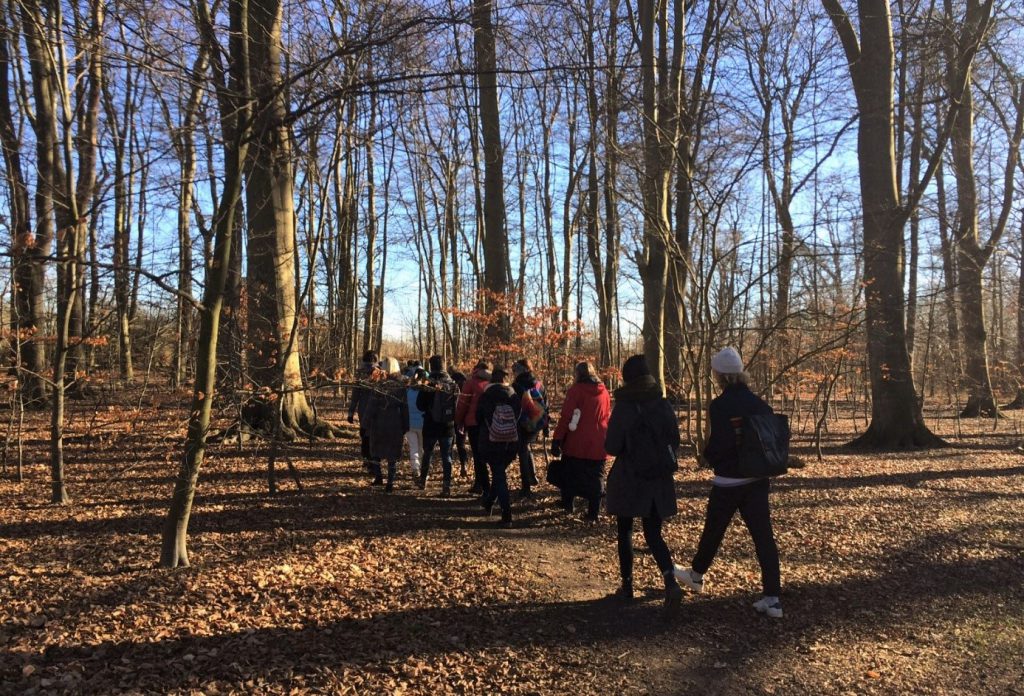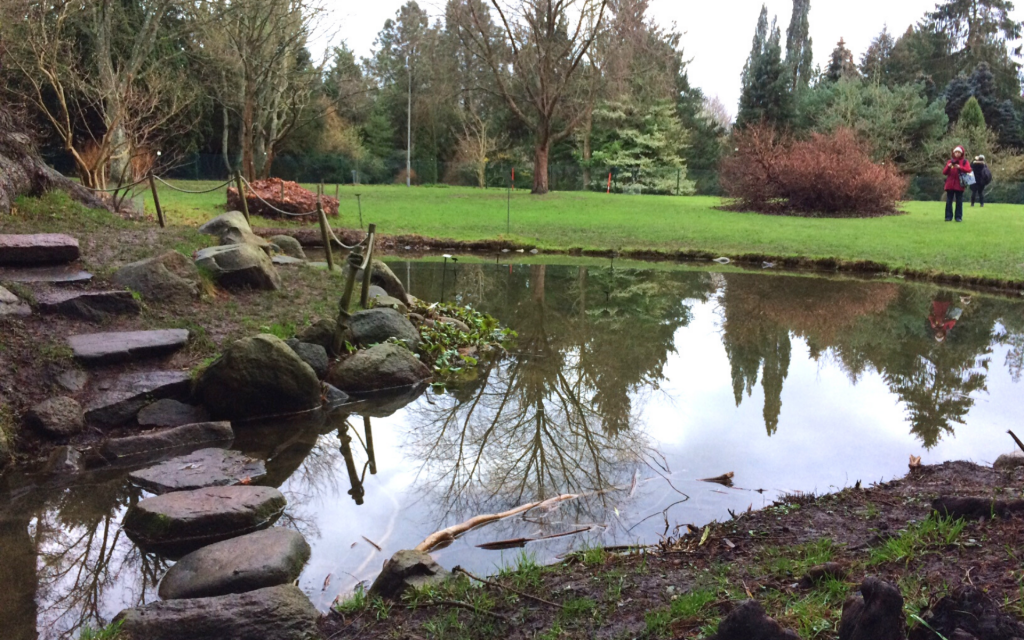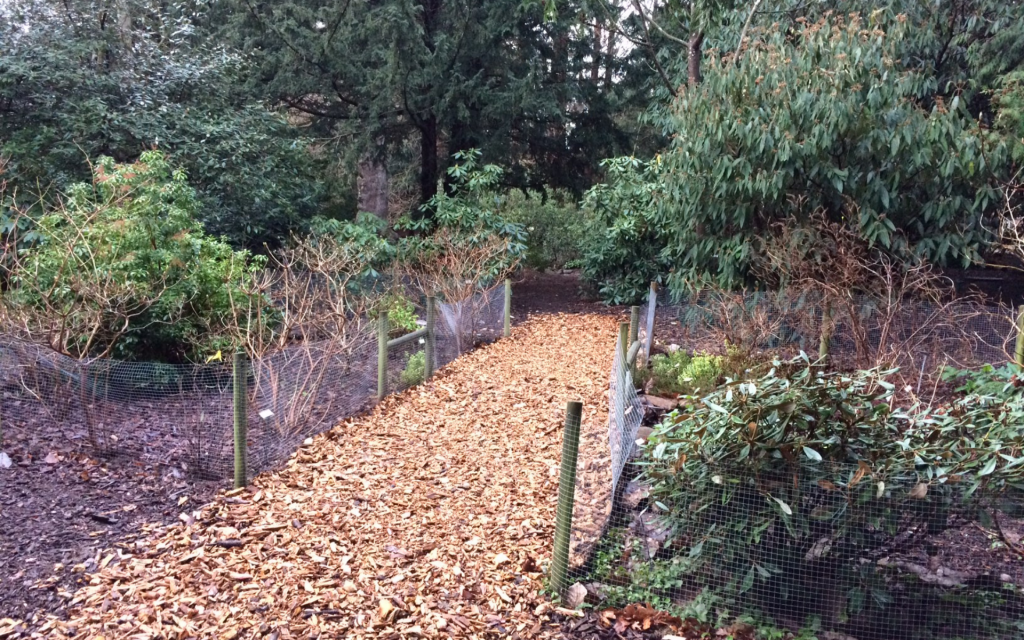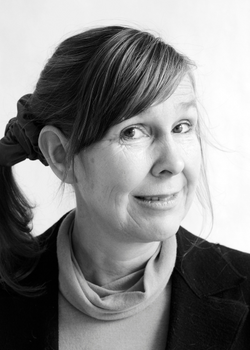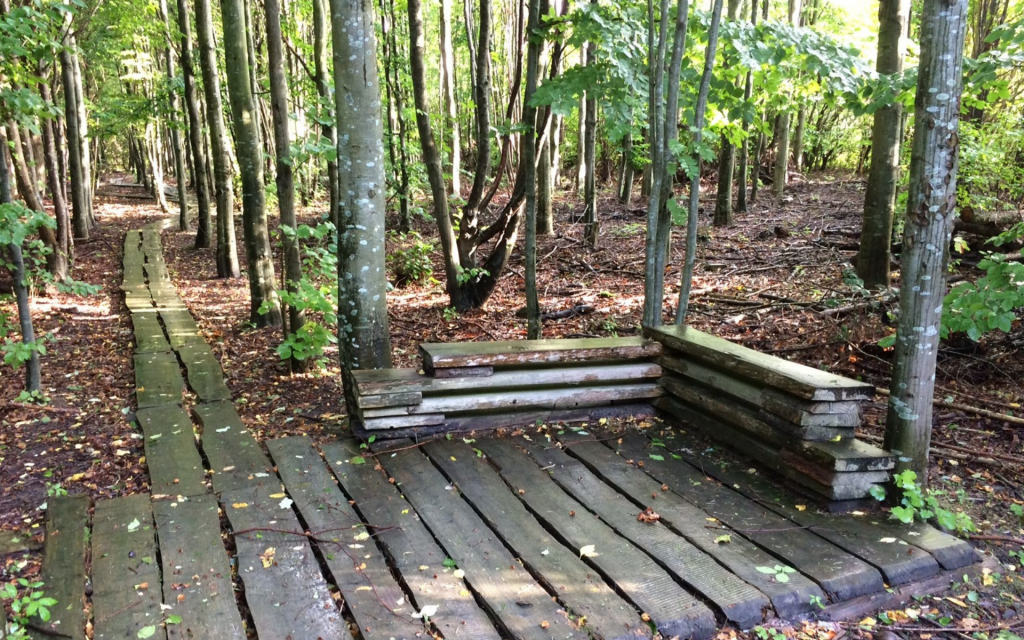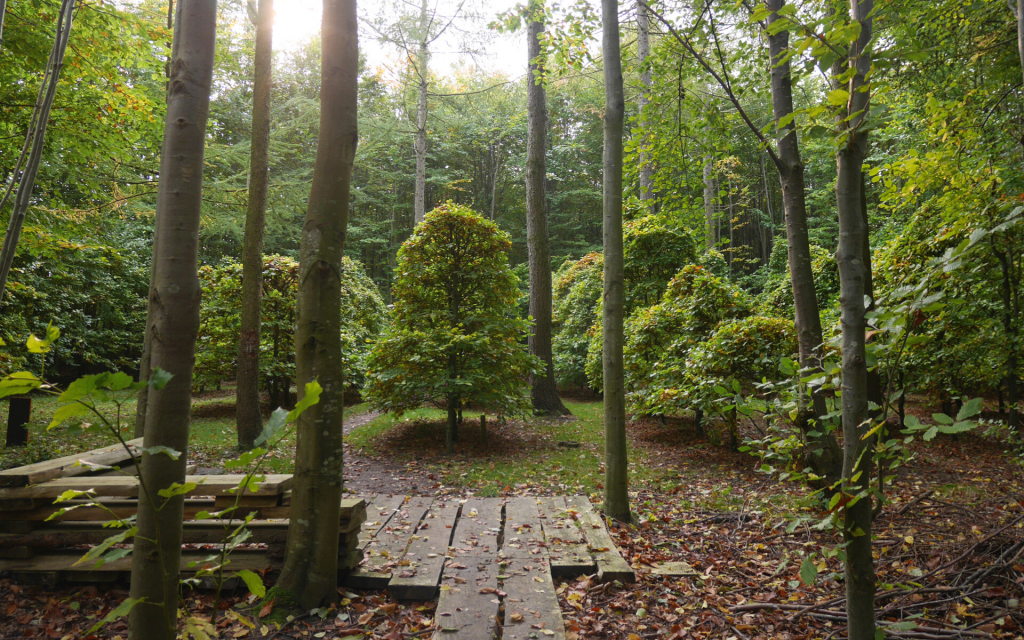Alnarp’s Living Lab Landscape
Published 9 March, 2022
Alnarp can be seen as an agricultural and forest island in the highly urbanized region of Malmö, in the south of Sweden. The dynamic campus landscape constitutes a valuable resource for transdisciplinary research, teaching and collaboration. The sheer size and diversity of the landscape provides an opportunity to explore and test new solutions that have relevance far beyond its borders.
Campus Alnarp is home to a number of active living labs – a methodology that requires new ways of thinking, working and doing, engaging multiple stakeholders from inside and outside of academia. This collaborative lab approach is gradually changing the university culture, offering new ways of devising solutions to complex problems.
Two of the most established living labs in Alnarp are the Alnarp Rehabilitation Garden, known for its successful collaborations with external actors, and the Landscape Laboratory, inspiring and informing various professionals worldwide for more than 30 years. Here academic knowledge is directly implemented, crossing disciplines and knowledge fields, and the lessons learned are influencing societal development.
Alnarp’s dynamic campus landscape has room for a multitude of living labs. The existing ones are forming an infrastructure, offering stepping stones for the university to work with the whole campus as a living lab. In the autumn of 2022, a new PhD project in Alnarp will explore this holistic approach, focusing on campus development and knowledge transfer to other campuses.
Three living lab perspectives presented by staff members at Campus Alnarp:
Alnarp Rehabilitation Garden
– an ongoing collaboration
Sara Kyrö Wissler, Project Manager at the Faculty of Landscape Planning, Horticulture and Plant Production Science, SLU, Alnarp
The Alnarp Rehabilitation Garden is one of the living labs at Campus Alnarp. Since 2002, various research and development projects have been conducted in the garden and the campus is today considered a leading environment within nature-based interventions. A key element in the research projects has been the close collaboration with societal actors.
The facility at the Alnarp Campus offers supportive environments to permanently improve human health through nature-based initiatives. The first ten years in the garden focused on groups of people with stress-related mental disorder, in collaboration with the Swedish Social Insurance Agency and Region Skåne. In 2012, another research project started for people affected by stroke. This study was also conducted in close collaboration with Region Skåne as well as the Faculty of Medicine at Lund University. In parallel with continued research in Alnarp, Region Skåne initiated the research project Nature-Assisted Rehabilitation – a concept that is today part of ordinary care provision in Region Skåne.
Other collaborative partners have been the Swedish Public Employment Service, in a work-oriented rehabilitation program for people with mental illness and possible war trauma, and the Memory Clinic at Skåne University Hospital, where evidence-based design was used to create a roof terrace at the hospital, involving both patients and staff.
Today the full-scale lab of Alnarp Rehabilitation Garden also houses a multisensory outdoor laboratory and is a place for students, teachers and researchers to meet for teaching and studies of various kinds.
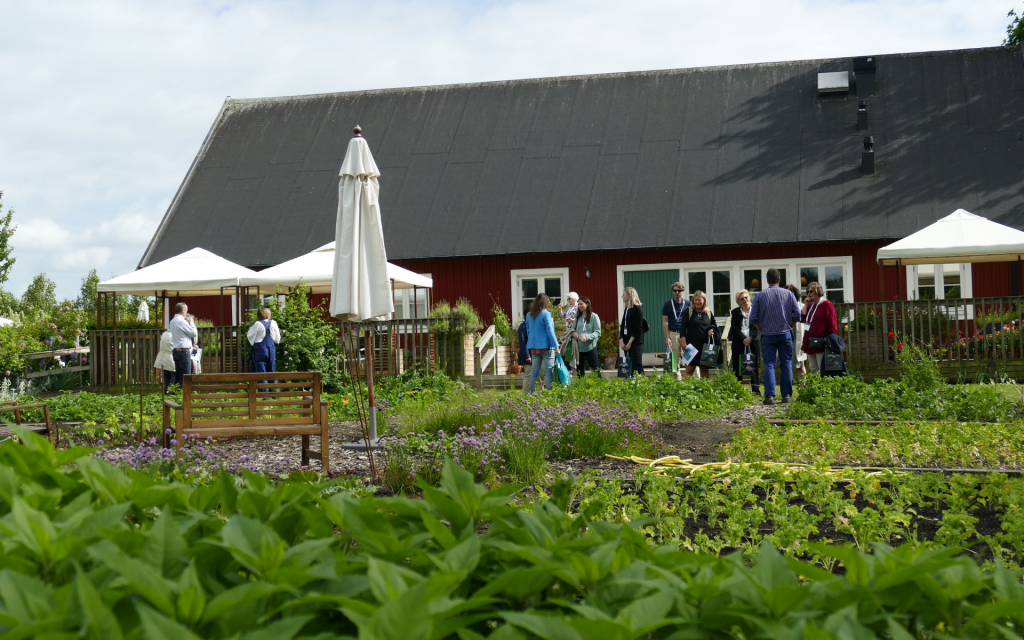
Learning in outdoor environments
Helene Landin, Lecturer, Department of People and Society, SLU, Alnarp
As a member of the environmental psychology group in Alnarp, I work as a lecturer with a focus on health-promoting outdoor environments for different user groups. Together with Anna Bengtsson, a landscape architect, I teach courses at bachelor’s level as well as courses in the Master’s programme Outdoor Environments for Health and Well-being. With my background in physiotherapy, patient education and development of health-promoting services, me and Anna supplement each other and form an important interdisciplinary knowledge base in the courses we give.
The courses at bachelor’s level aim to provide basic knowledge and understanding of the outdoor environment as a resource in healthcare contexts, and all practical parts take place at different locations on campus.
In order to gain the competencies needed to develop health-promoting programs or design proposals, our Master’s students need to understand and investigate outdoor environments from different user groups’ perspectives. They have to go out and explore, practice, discuss, reflect and create. In this regard, the Alnarp Campus is a great asset for both students and teachers as a supportive learning environment, but also for restoration and social activities.
Alnarp is the cradle of Swedish environmental psychology and as such provides good opportunities for studying and understanding the different theories within our research field. As the ancient Chinese philosopher, Confucius said: “I hear and I forget, I see and I remember, I do and I understand”.
The Alnarp Landscape Laboratory – a source of inspiration and information for over 30 years
Lisa Diedrich, professor at the Department of Landscape Architecture, Planning and Management, SLU, Alnarp
Europe’s first full-scale landscape laboratory was established in 1991, at the Swedish University of Agricultural Sciences’ Campus in Alnarp. The aim was to create a landscape serving interdisciplinary research, teaching and demonstration in scale 1:1, enriching a modem, intensively used agricultural landscape in the urban-rural fringe.
Today the Alnarp Landscape Lab offers an arena covering over 20 hectares of woodland stands, edges, shelterbelts, roadside plantations, meadows, wetlands and water bodies. The experimental urban woodland includes over 100 examples of forest and meadow habitats, on formerly cultivated land, creating various recreational values for visitors from near and far. The laboratory offers opportunities for several disciplines to study landscape enrichment and dynamic vegetation in full-scale areas, as an inspiration for urban forests, agricultural land, parks, gardens and road environments.
National and international visitors, as well as students, teachers and researchers at SLU, use the outdoor laboratory for long term follow-up studies, shorter experiments, workshops, inspiration and outdoor learning.
The young woodland landscape and its rich spatial and species variations opens the way for discussions on ‘desired’ appearance of urban woodlands, the potential role of design and management and the conceptual and technical approaches that could and should be used. Alnarp’s Landscape Laboratory thereby feeds into the overall discussion on how to develop woodlands and green spaces in and around urban landscapes in the future.
In the autumn of 2022 a book about Alnarp Landscape Laboratory, ‘Woods Go Urban’, will be launched:
“For the first time, this richly illustrated and academically founded book shows to an international audience of urban actors – be they public or private authorities, practitioners, researchers, teachers, students – how the experimental urban wood in the Alnarp Landscape Laboratory has contributed to generate knowledge about an ecologically beneficial, economically viable and socially robust typology of urban open space. Readers will appreciate to immerse into the atmospheres of the urban wood along its thirty-year-long development, its seasonal appearances, its interaction with various user groups. The authors of this book share key principles for the design and creative management of urban woods, including tools and techniques for conceiving, monitoring, teaching, researching and co-creating – a literature complement for those who study the Lab on-site, and a source of inspiration and guidance for all those who aim to engage in similar projects and processes.”
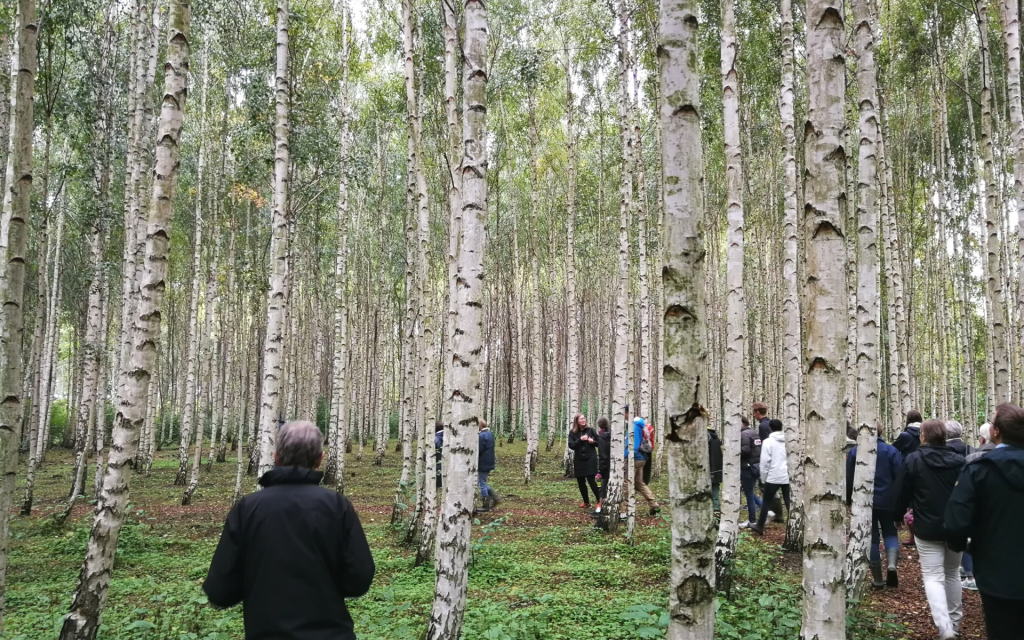
More about Campus Alnarp
SLU Urban Futures ‘Lab Stories’ on YouTube:
Alnarp Rehabilitation Garden
Alnarp Landskapslaboratorium (in Swedish)
Campus Development in Alnarp
Vision Alnarp
Campus Development and new Campus PhD project in Alnarp
SLU Urban Futures meets Michel Desvigne
SLU Landscape meets Suzanne Mathew
Courses at the Department of People and Society
Master’s level:
Outdoor Environments for Health and Well-being
Landscape Analysis for People and Environment Studies
Health Promoting Outdoor Environments
Bachelor’s level:
Gardens in Healthcare, Introductory Course
Healthcare gardens
Interreg Europe
Alnarp Landscape Laboratory is often shared as an example of good practice, and in the European network UrbanLinks 2 Landscape it states that “Professionals agree that the site is a ‘living tool kit’ informing and inspiring landscape design across Europe.”
Share
Co-creation!
Do you miss something here? Would you like to contribute? Please let us know: urbanfutures@slu.se

